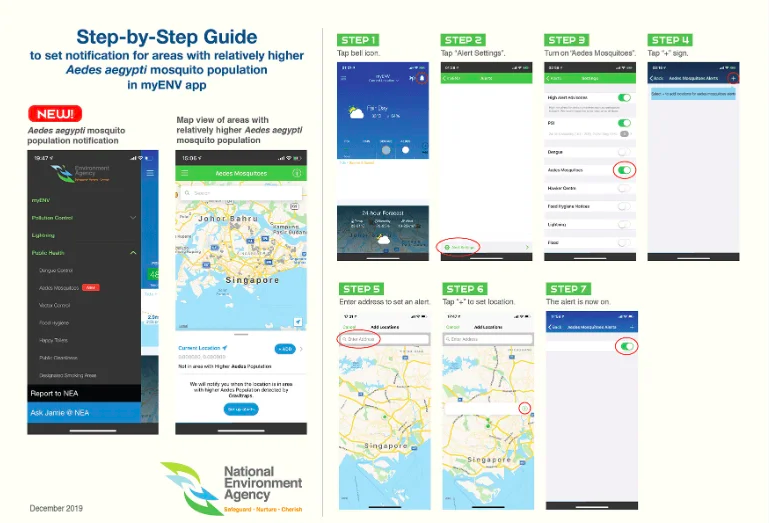The 'big' dengue outbreak that could infect more Singaporeans than the coronavirus


Amid the coronavirus outbreak, there is another headache that could be coming at Singaporeans very soon: a new strain of dengue. And these infections could be more widespread than the COVID-19 infections that have been plaguing Singaporeans.
In fact, since mid-December, dengue cases have been increasing week after week, and are expected to increase further according to the National Environment Agency (NEA).
400 dengue infections were reported just last week—an increase from 371 cases from the previous week. Another 63 cases were reported between Sunday and 3pm on Monday (10 Feb).

To put things in perspective, the number of dengue cases reported this year is 60 per cent higher as compared to the same period last year. 1,723 cases were reported in the first five weeks of the year as compared to 1,057 during the same period last year.
In 2019, Singapore experienced the third-highest number of deaths from dengue infection that led to 20 deaths.
“The high Aedes aegypti mosquito population in the community, current high number of dengue cases, and increase in circulation of DenV-3 serotype, could lead to weekly dengue cases rising above current levels in 2020,” NEA had reported on its website.
But the most concerning is the potential “switch in dominant serotype” to the virus type DenV-3 as past mosquito-transmitted virus types typically switch between DenV-1 and DenV-2.
A switch usually happens before an outbreak, which now the NEA has highlighted. And it is noteworthy because the DenV-3 virus has been less common here in Singapore, at least for the past 30 years.
And now, the proportion of DenV-3 infections have been rising for the past 3 months, even higher than DenV-2 infections according to NEA as told to the Straits Times.
“The monthly proportion of DenV-3 cases in January was approximately 47 per cent, higher than the proportion of DenV-2 cases at 39 per cent,” said an NEA spokesman.
With this increase, it only means that “a larger proportion of the population is now susceptible to dengue”.
This is due to Singaporeans having a low population immunity to the DenV-3 virus as there has not been that many infections previously. It also results in higher rates of transmission.

According to the NEA, there are now 114 active dengue clusters with large clusters at the following areas:
You can view current updates on the dengue clusters in the specific locations here.
ALSO READ: Dengue fever in Singapore: Symptoms, insurance & treatment costs
The symptoms of dengue infection include sudden onset of fever, severe headache and pain behind the eyes, joint and muscle pain, rash, nausea and vomiting.
It is a crucial time and it takes the entire community to work together to tackle these outbreaks, whether dengue or Coronavirus.
To help involve the community, the NEA has made information on areas with relatively higher Aedes aegypti mosquito population available on their NEA website, myENV app and other official channels.

“Concerted community action and sustained mosquito control efforts are thus needed to prevent further escalation of the Aedes aegypti mosquito population, and an increase in the number of people becoming ill with dengue,” said NEA.
Source: NEA, The Straits Times
This article was first published in theAsianparent.